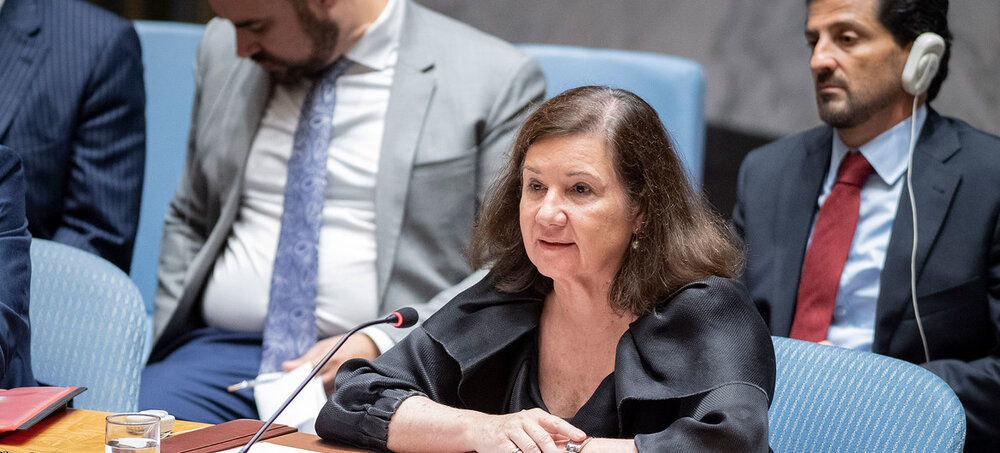UN backs nuclear deal, says genuine dialogue needed to avoid confrontation in region

UN Secretary-General’s Chef de Cabinet Maria Luiza Ribeiro Viotti said on Tuesday that “restraint and genuine dialogue are urgently needed” to avoid a major confrontation, which would have disastrous consequences, even well beyond the Middle East region.
Briefing the Security Council on the situation in the Middle East, she described the situation in the Middle East as “troubling and complex”.
Tensions in the Strait of Hormuz have been raised to dangerous levels, she said.
She added that the rights and duties related to navigation must be respected in accordance with international law.
Elsewhere, she expressed the UN support for the 2015 nuclear deal.
In an exclusive interview with Al Jazeera on August 12, Iranian Foreign Minister Mohammad Javad Zarif warned against an arms race in the Middle East.
“The U.S. [sold] $50bn worth of weapons to the region last year. Some of the countries in the region with less than a third of our population spend $87bn on military procurement. Let’s make a comparison, Iran spent last year $16bn on all its military with almost one million people in the army.
“The UAE with a total population of one million spent $22bn, Saudi Arabia spent $87bn. If you are talking about threats coming from the region, the threats are coming from the U.S. and its allies who are pouring weapons in the region, making it a tinderbox ready to blow up,” Zarif told Al Jazeera.
Zarif’s comments came after the United States announced it is working to form a military coalition to supposedly protect commercial shipping in the Persian Gulf following attacks on oil tankers near the Strait of Hormuz.
On August 14, President Hassan Rouhani insisted on Iran’s position that there is no need to foreign forces to maintain security in the Persian Gulf region.
“Major powers, especially America, seek nothing except causing division and emptying treasury of the Islamic countries. The Persian Gulf littoral states can maintain security and stability in the region,” Rouhani said during a cabinet meeting.
Zarif said on August 9 that the Persian Gulf is a “national security priority for Iran” and that Tehran will not “hesitate to safeguard its security” in this strategic waterway, which he described as a “vital lifeline” for the Islamic Republic.
The chief diplomat warned that military presence of extra-regional forces is absolutely a “source of insecurity”.
“Mindful of this reality, any extra-regional presence is by definition source of insecurity - despite propaganda,” Zarif wrote on his Twitter account.
NA/PA
